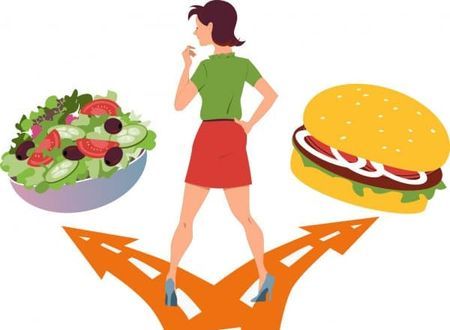You’re more likely to click on ‘6 Habits of Deeply Miserable People’ than you are ‘7 Habits of Incredibly Happy People’, even though both titles point to the same thing but from different sides of the coin. The first, however, draw your attention more.
This is because of Negativity Bias; the natural tendency to focus more on negative things than positive.
If you receive 10 compliments in a day plus 1 insult you’re more likely to ruminate on the insult than relish in the 10 compliments. It’s also why when we argue with our significant others we tend to focus on the negative things they’ve done rather than remember all the positives.
Psychologists Rozin and Royzman outlined the manifestation of negativity bias. Simplified, if one event is of equal positive magnitude as another is equally negative, you’re more likely to focus on the negative event (negative potency).
If both events increase in intensity at the same rate, i.e. the positive event becomes better as the negative event becomes worse, you’ll perceive the negative one to be more negative than the positive one is more positive (steeper negative gradient).
Equal strength positive and negative factors taken together tend to take a more negative outlook in the mind rather than a positive one (negativity dominance). And finally, negative differentiation states the way we form negative concepts in our minds is more complex than how we form positive ones, so we have more focus on them because they take more brain power to form.
This is all very technical, so let’s run with our compliments example.
If you receive a genuine compliment and a genuine insult you’ll likely dwell on the insult than savour the compliment. If the person complimenting you do so 3 times more but the person insulting also levels 3 more digs at you, you’ll perceive the insults to be far worse than the compliments are positive.
When thinking of the same number of compliments and insults, your mind will naturally lean toward seeing the overall experience as negative, even though the positive and negative factors are equal.
Why Are We So Negative Though?
It’s all to do with survival. We’re still animals at the core and we have two main drives, survival and reproduction. Survival comes first and trumps all other instincts, no matter what.
Our minds focus more on negative stimuli because negativity could be perceived as far more of a threat to survival than positive stimuli. We still have hunter-gatherer urges lodged in the bases of our brains which are rather outdated in our modern world.
Early humans evolved to perceive certain things as potential threats to survival. For example, another human complimenting you could mean they like you, maybe they wanted to share food or mate, which would be great for reproduction.
A human insulting you, though, could mean they wanted to steal your food or even kill you. In the modern age, an insult rarely means a threat to life, but we still carry the evolutionary responses of our ancestors, we haven’t evolved out of them.
The compliment could mean bonding or reproductive action, the insult could mean a threat to life. Survival trumps all other instincts, so the insult, the negative stimulus, is given more attention by the brain.
Given the Choice, We’d Much Rather Avoid Loss than Gain Benefit
Say you’re a caveman (or woman). You haven’t eaten in days and you see a lush green tree with ripe fruit hanging off it. Now say there’s a tiger next to that tree who’s looking at you like he hasn’t eaten in days.
The tree and its delicious fruit are the positive stimuli, and the tiger and its gleaming jaws are the negative stimuli. Your mind must give more attention to the negative stimuli than the positive to survive. If it gives equal weight to both you could spend too long deciding whether to outrun the jaws of death or grab yourself some sweet fruit, by which time the tiger would’ve already grabbed you for lunch.
The instinct to survive makes us lean far more toward being loss-averse than it makes us benefit-gain. We would much rather not lose something than we would be happy to gain something. This remains true in humans to this day.
A study was done which showed this effect when selling home insulation. Salesmen made far more sales when they told homeowners how much they would lose from not insulating their homes rather than what they would gain that is ‘if you don’t insulate your home you’ll lose $500 a year was far more effective than saying ‘If you insulate your home you’ll save $500 a year.
This is why ‘6 Habits of Deeply Miserable People’ draws you in so much more than ‘7 Habits of Incredibly Happy People.
The first title speaks to your negativity bias, you naturally give it more weight than the positive title.
Secondly, because we’re far more loss-averse than we are benefit-gain, we’d rather read negative things to make sure those things don’t apply to us than read positive things to see if they do apply or to try and gain personal benefit from them.









Comments & Discussion
1 COMMENTS
Please login to read members' comments and participate in the discussion.